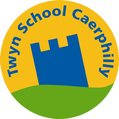New Curriculum for Wales
We are following the new 'Curriculum for Wales'. Watch the video and read the document below to find out more about how this will affect your child's learning.
The official website for the Curriculum for Wales is https://hwb.gov.wales/curriculum-for-wales
The new Curriculum for Wales differs from the old curriculum in several key ways, reflecting changes in educational philosophy and priorities. Here are some of the main differences:
The official website for the Curriculum for Wales is https://hwb.gov.wales/curriculum-for-wales
The new Curriculum for Wales differs from the old curriculum in several key ways, reflecting changes in educational philosophy and priorities. Here are some of the main differences:
- Focus on Four Purposes: The Curriculum for Wales emphasises four overarching purposes: Ambitious, capable learners; Enterprising, creative contributors; Ethical, informed citizens; Healthy, confident individuals. These purposes drive the entire curriculum, shaping what and how students learn, and emphasising the development of skills and attributes beyond academic knowledge.
- Areas of Learning and Experience (AoLEs): The new curriculum organises learning into six AoLEs: Expressive arts; Health and well-being; Humanities; Languages, literacy, and communication; Mathematics and numeracy; Science and technology. This differs from the old curriculum's subject-based approach, promoting interdisciplinary learning and recognising the interconnectedness of knowledge and skills.
- Progression Steps: Instead of traditional grade levels or stages, the Curriculum for Wales uses progression steps to track learners' development and progress. These steps provide a more flexible and personalised approach to education, allowing for individualised learning pathways based on each student's needs and abilities.
- Cross-Curricular Skills: While both the old and new curricula emphasize the importance of essential skills such as literacy and numeracy, the Curriculum for Wales explicitly integrates these cross-curricular skills throughout all areas of learning. This helps students develop transferable skills that are applicable across different subjects and contexts.
- Assessment: Assessment practices in the new curriculum are designed to be more holistic, authentic, and formative. Instead of relying solely on standardized testing and exams, assessment in the Curriculum for Wales includes a variety of methods such as ongoing teacher assessment, self-assessment, and project-based assessments. The focus is on evaluating students' progress against the four purposes and their ability to apply knowledge and skills in real-world situations.
- Digital Competence: The Curriculum for Wales places a stronger emphasis on digital competence, recognising the importance of digital skills in today's world. Digital competence is integrated throughout the curriculum, helping students develop the skills they need to thrive in a digital society.
- Professional Learning: The implementation of the new curriculum involves comprehensive professional learning and development for teachers and educators. This support is crucial for helping educators understand and effectively implement the new curriculum, as well as for promoting continuous improvement and innovation in teaching practice.




